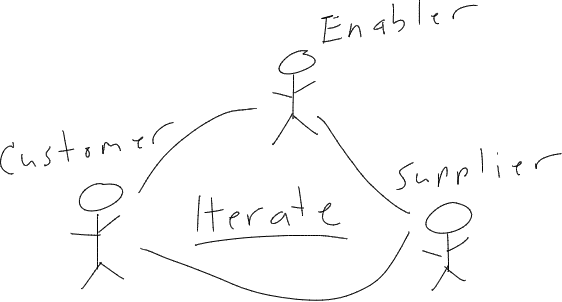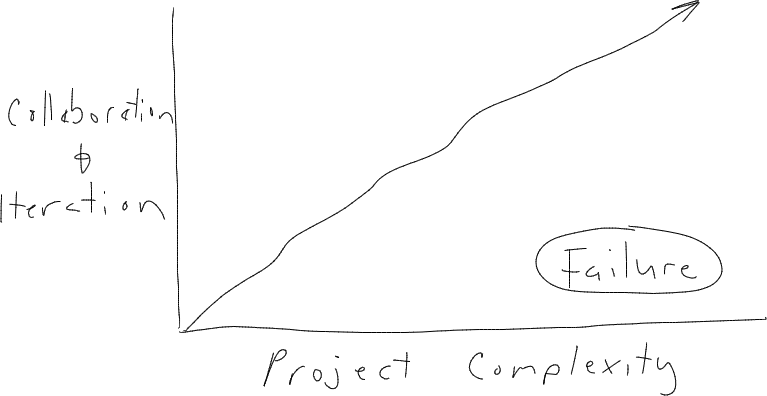The Development Process
Contents
The development process has been extensively researched and there are many processes or methodologies that have been proposed over time. This document attempts to identify simple concepts that will be generally useful.
Documentation
Documentation is an important part of the development process. See the Documentation chapter for more information on this topic.
The Development Triangle
Life is full of trade-offs – product/software development is no different. Fast, Cheap, Features … pick two. Want all three? Then quality will suffer.

Why is Iteration important?
There are several attributes of modern systems that are perhaps different than systems in the past:
- They are often complex such that no one person understands the entire system, or can even visualize all the possibilities. The most innovative and useful systems are a combination of many good ideas.
- There are plenty of resources for expansion (memory is cheap, processors are powerful, standard interfaces like USB allow for easy expansion)
- The system can be upgraded (software updates are standard)
- The problems they solve are complex and the problem often changes once people try something and better understand what can be done.
- Perfection comes from refining ideas, trying things, etc.
The software industry has long understood this and most development processes have moved from a waterfall to agile type methods. However general project and hardware development thinking tends to lag -- partly due to practical considerations such as the cost of building physical prototypes. However, these costs are becoming lower and lower each day and innovative companies have embraced iteration. As this article states so well:
Apple does this with their hardware. Why don’t you?
Business Relationship Models
The simple way of managing projects is the "throw it over the wall model." In this model, you typically have a gatekeeper that manages the over-the-wall transition.

This model works fairly well for simple systems or components that can be clearly specified and no iterations are required. In this case, an experienced gatekeeper may be able to add a lot of value in managing the process. Gatekeepers may be a consultant, distributor, manager, purchasing agent, etc. However, as the complexity of a system increases, the gatekeeper increasingly finds they don't know everything about the system. Instead of improving the process, they become a bottleneck.
As systems become more complex, the need to collaboration and project iteration grows -- the success of open source software has long proven this. Thus having processes where all parties involved can easily collaborate is critical.

If open processes are not in place, the following happens:
- the best ideas are never discovered, as the right people never work together
- problems are extremely difficult to solve as the right people don't have visibility
- motivation suffers because not everyone gets to share in the project success or failure
- things move extremely slow
Thus, for modern systems, it is important to foster processes and environments that encourage openness, collaboration, and iteration.
